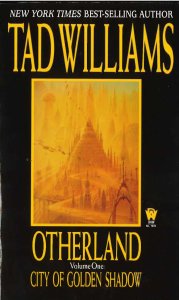With one day left in the year, I think it’s safe to say I will not achieve the goals I set out for myself in 2014. I was hoping to complete three books, and instead I completed precisely zero. This suggests that I failed rather spectacularly, though the truth is not nearly so dire when I drill down to the amount of work I actually completed. The primary book I intended to write was supposed to be finished at approximately 100,000 words, and indeed I wrote 110,000 words—so I’m not done yet, but not for lack of trying. There’s just more story than I anticipated when I started it back in January. The other two books are already written more or less in full, and only require some polish to get ready. And therefore, with great confidence, I am able to predict that I will not only write, but also publish, three books minimum in 2015. A fourth book is not out of the question.
A year ago, I think I might have found a year in which I published no new titles discouraging. As important as it is to be releasing new material as often as possible, though, it’s also important to realize that one must devote the necessary time to producing quality writing. For me, 2014 was just such a year, and I expect to reap the rewards starting in the spring. So despite my seeming failure, the past twelve months have in reality been very productive. I’m enthusiastic about the coming months as I creep closer to the finish line on these multiple projects.
My primary novel-writing endeavour this year was getting through The Law of Radiance, the still somewhat tentative title of the third and final book in my Watchers Chronicle trilogy. In past years, I’ve adopted some pretty solid techniques for maintaining productivity and discipline, but this year the challenge was more about bringing a long-form story like this one to a close in as satisfying a manner as possible. Tying up the various plot and character threads of a single novel is challenging enough, so tying up three novels’ worth is a tall order. I’ve definitely learned a few things I’ll be taking into account next time I attempt a story on this scale.
Other lessons learned: don’t let yourself lose momentum when you reach a difficult yet critical juncture in your work in progress. My tendency is to work my way up to those big difficult moments, then back away for a few weeks, using the excuse, “I need to think this through before I move on.” The end result is that I typically go back and write it according to my first instinct anyway, so I don’t gain much by the delay and lose quite a lot of time in the process.
And as usual, the biggest professional obstacle standing in my way is my handling of the day job, which I routinely allow to take precedence over my writing. Which is, of course, a common scenario. This always seems to make sense at the time, but looking back over the past year, my biggest regrets revolve around not taking full advantage of the short periods of free time between my day job hours. It seems to me I could have squeezed out several more chapters if I’d made myself fill in all the cracks in my schedule that way.
Well, there’s always next year!

 As a reader, I have a lot of reverence for the cliffhanger. I think I am perhaps in the minority here. I can certainly remember a time when cliffhangers drove me crazy. Back when I was in junior high, I would anxiously (not boldly) go into the various Star Trek season finales, knowing they wouldn’t end well for my heroes and I’d likely suffer months of torment afterward waiting for the inevitable resolution come fall.
As a reader, I have a lot of reverence for the cliffhanger. I think I am perhaps in the minority here. I can certainly remember a time when cliffhangers drove me crazy. Back when I was in junior high, I would anxiously (not boldly) go into the various Star Trek season finales, knowing they wouldn’t end well for my heroes and I’d likely suffer months of torment afterward waiting for the inevitable resolution come fall.